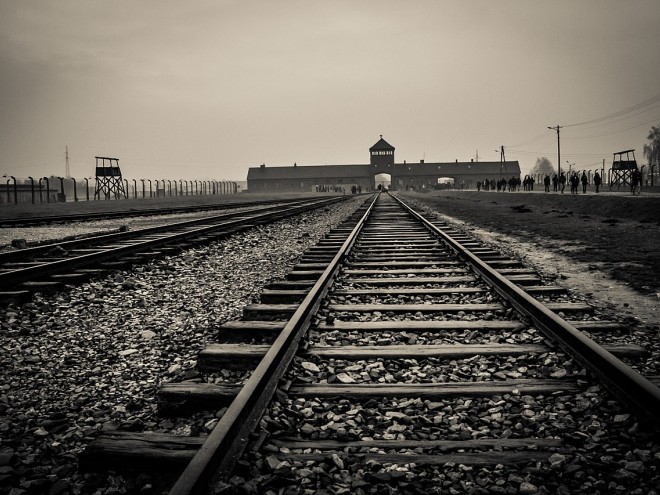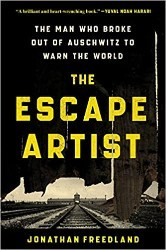In September 1943, a group of German elites gathered for a birthday party. Over Kaffee und Kuchen, they discussed the future of their country, one they hoped would not involve Hitler. They were betrayed by one of their own and, four months later, arrested by the Gestapo.
This is where Jonathan Freedland’s latest work of nonfiction begins. Freedland then reconstructs the paths the partygoers took to arrive at that critical moment as well as their fates afterward. The result is a well-researched and occasionally thrilling exploration of what causes some people to resist tyranny — and others to indulge in it.
The partygoers opposed Nazism in various ways. Some corresponded with dissents abroad and imagined a post-Nazi Germany; others helped Jews. The fantastic, high-wire rescue exploits of one member of their circle — a free-spirited Silesian noblewoman with seemingly limitless physical prowess — defy belief until it is revealed that she undertook many of her rescue missions while on stimulants. Just as interesting as the countess’s adventures are the ways in which the partygoers attempted to strike some accommodation with the regime before they moved into quiet resistance. One diplomat rationalized his continued service to the Reich by styling himself as a representative of the German people, not Hitler, until losing his post and being given the opportunity to more fully adhere to his conscience. Another was a conservative German nationalist, initially not unopposed to National Socialism, who was removed as headmistress from the school she had founded for reading a psalm — an Old Testament, Jewish text — during a school ceremony. Both spent the rest of the war adhering to their principles, and both paid for it with their lives.
The protagonists arrived at resistance from a variety of ideological paths. Some were nationalists who believed Hitler had poisoned their beloved country, and others were motivated by a strong sense of Christian morality. All hailed from aristocratic or otherwise privileged backgrounds; as Freedland points out, these were people accustomed to being in charge, and their patrician heritage gave them the confidence to break laws with which they did not agree. Their last name and titles had saved a few of them from more minor brushes with the law of the Reich, but by that September their luck ran out. They were sent to several camps and prisons, including Ravensbrück, and convicted in a show trial; those who survived did so because they outlived the Reich.
Less interesting are the motivations of the man who betrayed them to the Gestapo. At first, he appears driven by a sense of inferiority mixed with ruthless ambition. Later, as his postwar story unspools, his amorality appears even more stunningly pathological. Perhaps the less said about the turncoat, the better; after all, cruel, power-hungry men with deeply flawed personalities are hardly unique or unfamiliar, now or then. Those who are more intriguing and instructive are the people who actively oppose men like him and the world they attempt to create. The Traitors Circle does not break new ground in the history of resistance to Nazism, nor does it attempt to. Instead, it stiffens the spine and reminds us that even in the darkest days imaginable, decency, morality, and courage still matter.
Meghan Riley earned a PhD in Modern European History from Indiana University. She is a postdoctoral fellow at Northern Arizona University.





